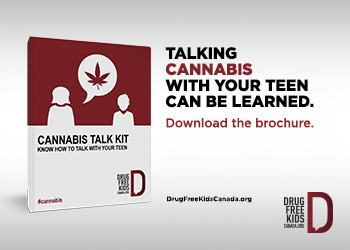Cannabis
Medical Cannabis
Medical cannabis refers to the use of cannabis and cannabinoids as a physician-recommended therapy for treating certain health conditions and symptoms which may have not responded to conventional medical treatments.
The Canadian Access to Cannabis for Medical Purposes Regulations (ACMPR) allows individuals with a prescription from a health care practitioner to obtain cannabis from a licensed producer, and to possess and use cannabis as part of their medical treatment.
Consuming Medical Cannabis
Medical Cannabis can be inhaled (smoking or vaporizing) or ingested (tea, oil or capsules) and absorbed into the bloodstream. Smoking cannabis is not recommended due to the harmful health impacts of inhaling smoke. The onset of effects can take 5 to 10 minutes when inhaled or 1 to 3 hours while ingested. The duration can last from 2 to 8 hours depending on the means through which it was consumed.
Your Pharmacist’s Role
As a trusted medication expert, your Rexall Pharmacist has an important role to play in the safe and informed use of cannabis. Your Rexall Pharmacist has gone through training to be able to answer questions from customers/patients about the use of cannabis, including considerations for dosing, titrating and monitoring, as well as key tips for counseling patients with various questions and advising of potential interactions and side effects.
It is important for you to inform your Physician and Pharmacist if you are using cannabis, whether it is for medicinal or recreational use. Your Physician and Pharmacist will be able to provide impartial advice of how cannabis may react with your health, current medical conditions, and medications that you are taking.
Can I get medical cannabis at a Rexall pharmacy if I have a prescription?
Under the current Health Canada regulations for medical cannabis, the only legal distribution method is by mail order from licensed producers direct to patients. A cannabis sales license from Health Canada is also required to dispense medical cannabis to patients. Visit https://www.canada.ca/en/health-canada/services/getting-cannabis-from-licensed-producer/accessing-from-licensed-producer.html for licensed producers.
Frequently Asked Questions (FAQs)
What is cannabis?
Cannabis, also known as marijuana, is a common name for the Cannabis plant. The flowers and leaves of the plant contains hundreds of compounds, but the two main compounds currently with medicinal application are:
- THC (Delta – 9- tetrahydrocannabinol) is the psychoactive component involved with the euphoria, or high feeling that cannabis is known for. It has also been used to alleviate pain, muscle spasms, cancer induced nausea and vomiting, and lack of appetite.
- Cannabidiol (CBD) is an active ingredient in cannabis used to help with chronic pain, nausea and vomiting, and anxiety.
Continued research is required to better understand how medical cannabis use fits within current health care practices.
What is the difference between cannabis and marijuana?
Most medical producers, dispensaries, and federal legislation are gravitating toward "cannabis" as the preferred term. According to Health Canada, cannabis is the preferred term because it includes more products than marijuana which Health Canada defines as "the dried flowers, leaves, stems and seeds of the cannabis plant."
Cannabis in Canada
As of October 17, 2018, Canada has become the first country in the Group of Seven (G7) to approve recreational use of cannabis and only the second worldwide to legalize it nationwide. Provincially regulated websites and retail outlets will be the only legal option for purchasing recreational cannabis. These sites will follow strict rules set by all three levels of government (federal, provincial and municipal). Whether vaping or smoking recreational cannabis will be allowed in public places will be determined by each province.
Medical cannabis will continue to be subject to different rules than recreational cannabis. Visit https://www.canada.ca/en/health-canada/topics/cannabis-for-medical-purposes.html for more information.
What are the provincial approaches to cannabis legalization?
Are the rules that apply for medical cannabis the same for recreational cannabis?
Medical cannabis is subject to different rules than recreational cannabis. The production and sale of medical cannabis is regulated exclusively by the federal government. If a health care professional has already authorized someone to use cannabis for medical reasons, their access will not change when recreational cannabis becomes legal.
Is recreational cannabis legal?
As of October 17, 2018, people 18 or 19 or older, depending on province, will be able to purchase cannabis through provincially regulated cannabis stores. Consumers will be required to verify their age to purchase cannabis. Only specific forms of cannabis will be available for purchase including fresh cannabis, dried cannabis, cannabis oil, cannabis seeds, or cannabis plants from retailers authorized by the provinces and territories. Other forms of cannabis (e.g. edible products, drinks, cannabis concentrates) remain illegal.
Can you overdose on cannabis?
Yes, you can overdose on cannabis. This is a particular risk with edible forms of cannabis, which can take 30 minutes to 2 hours for any effects to appear, misleading users to increase their exposure over a short period of time. Symptoms may include disorientation, extremely fast heart rate, hallucinations, pupil dilation, shaking that is hard to control, feeling cold, shortness of breath, temporary feelings of paranoia, fear and anxiety, vomiting and/or nausea. Please visit the nearest emergency room if you or a loved one may be experiencing an overdose.
Cannabis in all forms must be stored in a secure place away from sight and access of children and pets who are especially vulnerable and at risk of accidental ingestion and overdose. If accidental ingestion occurs visit the nearest emergency room immediately.
For information on cannabis side effects, click here.
Is cannabis use safe in youth?
Youth (people less than 25 years of age) who use cannabis early and often for months or years, are at risk of long-term health and social problems, such as increased risk of harm to the brain, increased risk of mental health problems, difficulties with relationships, physical health harms and addiction. Even short-term use can cause mental and physical harm.
More comprehensive information on the risks of cannabis use in youth can be found at Drug Free Kids Canada




